지지씨
THE FORMATION AND DEVELOPMENT OF KOREAN SILHAK, ASTRONOMY AND GEOGRAPHY
2. Development of Silhak
At the turn of the 18th century there emerged a group of scholars united under the banner of Silhak. Yi Ik (1681-1762/pen-name: Seongho) led a group of physiocrats who saw the need for innovation of the state systems. In the late 18th century, Bak Ji-won (1737-1805/pen-name: Yeonam) led a group of mercantilist scholars who stressed the importance of commercial promotion and technological development. In the early 19th century, there was a group of scholars led by Gim Jeong-hui (1786-1856/pen-name: Chusa) who emphasized the importance of seeking truth from fact. They also stressed the importance of positivism, including the use of historical records or epitaphs in academic research. As visionaries who saw the need for social reform of the Joseon society, these groups of Silhak scholars engaged in academic research closely associated with people’s daily life. There emerged a group of scholars who emphasized “Joseonology” (a study of the language, history, geography, and industry of Joseon), which marked a departure from the Sino-centric tradition. Around the same time, “the methodology of historical research” and “ancient learning” developed respectively in China and Japan - countries that were similar to Silhak in Joseon in nature and played a key role in accommodating western culture following the opening of their doors to external influences.
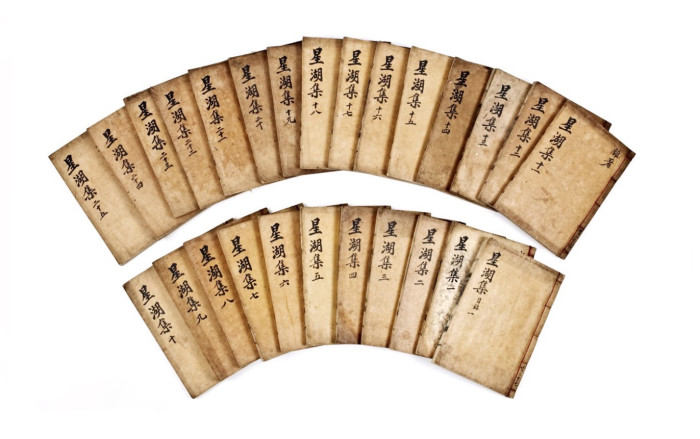
Seonghojip (Collection of Yi Ik's Writings)
This book is a collection of literary works written by Yi Ik (a.k.a. Seongho, 1681-1762), who is widely regarded as a man of vision and one of the greatest political theorists in Joseon (1392-1910), and edited by his nephew Yi Byeong-hyu (1710-1776). As a Confucian scholar he stressed the importance of diligence and strict discipline, while as a political thinker he proposed a broad range of reforms according to his belief that the fundamental principle of politics should be to protect the people by securing their livelihood.
Yi Ik (pen-name: Seongho) led a group of physiocrats as the founder of Silhak during the late Joseon Period. Active in Ansan near Hanyang (present-day Seoul) in the early 18th century, he energetically absorbed the western culture and civilization that had been introduced to the capital. He stood against neo-Confucianism, which was now focused largely on maintaining the etiquette system and had been degraded to an ideological tool of the reigning powers. Yi engaged in realistically useful academic studies on history, geography, politics, economy, military, and education among other matters.
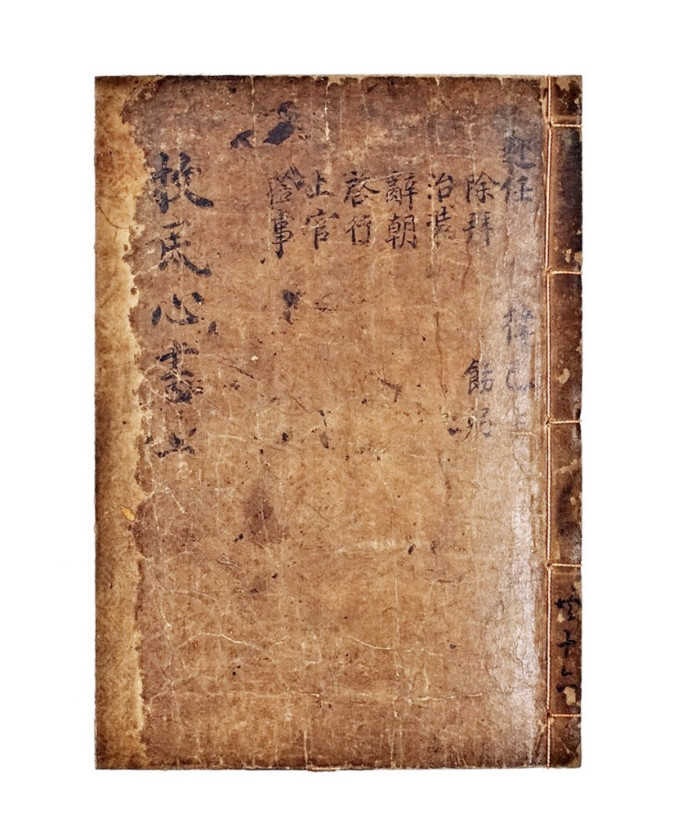
Mongminsimseo (Admonitions for Governing the People)
One of the three books on politics and law written by Jeong Yak-yong (1762-1836), this book contains guidelines set by the author to help local administrators improve their services for the people. It was one of the most influential guides written on governance of the people by local administrative chiefs during late Joseon, the others being The Essentials on Governing the People (Imgwanjeongyo), Prescriptions on the Duty of Shepherding the People (Mongmindaebang), and The Essentials for the Government of a County (Chigunyogyeol). The book by Jeong Yak-yong differs from the rest, however, in that it provides detailed, systematic instructions by focusing on the duties of the six key departments of a local government, whereas the others' descriptions are brief and largely focused on the seven duties of local administrative chiefs. The book is now widely regarded as one of the greatest of its kind published in East Asia in pre-modern times.
Jeong Yak-yong (1762-1836/pen-name: Dasan) was a scholar who compiled diverse relevant materials about Silhak into a single book in the late Joseon Period. He started reading the writings of Yi Ik at the age of 16 and developed a profound interest in Silhak. When he was 23, he had an opportunity to read western books obtained through Yi Beok, a brother-in-law of his brother Jeong Yak-hyeon. By 28, he had become an official and was helping King Jeongjo (r. 1776-1800) to implement a reality-based system of governance in accordance with the principles of the Silhak philosophy.
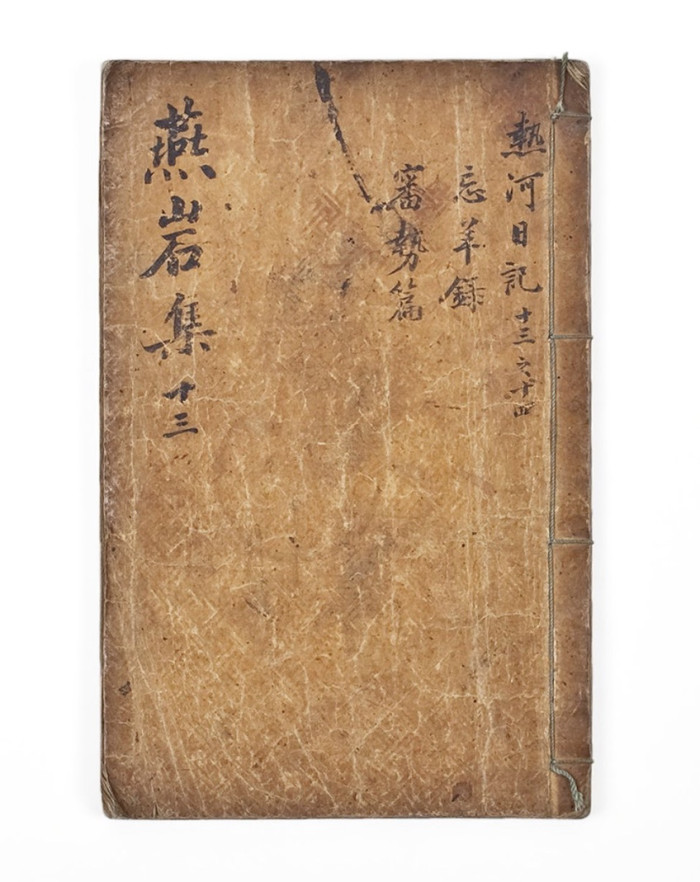
Bak Ji-won was a Silhak scholar and writer who specialized in classical Chinese in the late Joseon Period. Along with Hong Dae-yong and Bak Je-ga, Bak led a group of mercantilist scholars who sought to overcome the false social consciousness prevalent in the Joseon society, including the noble-class consciousness and the view that the Qing Dynasty should be punished for its invasion of Joseon in 1636 and its conquest of the Ming Dynasty, an ally of Joseon. They stressed the importance and usefulness of academic research to the everyday life of the grassroots people. They also pointed out that Joseon should rehabilitate her culture by accommodating more advanced cultures from China and western countries. Such a view formed the basis of the reformist and enlightenment philosophy of that period.
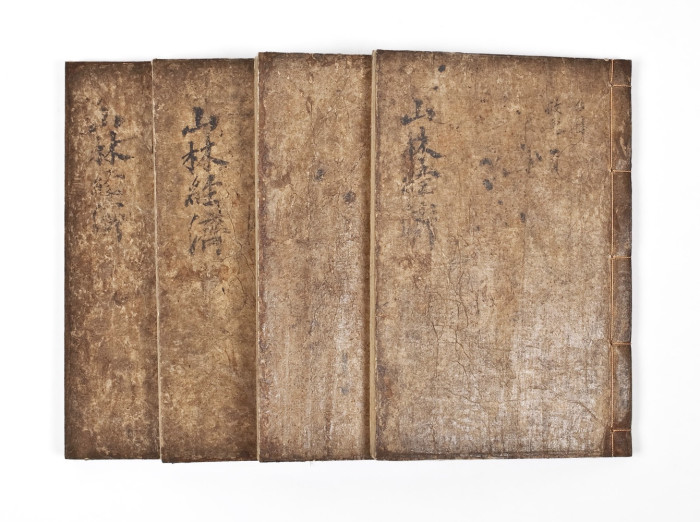
Sallimgyeongje (Farm Management)
This encyclopedic work of agriculture written by Hong Man-seon (1643-1715) deals with almost all the subjects related with farming and life in rural areas, including housing, food and health, farming, and gardening. The book is highly regarded for the comprehensive practical knowledge it contains for the benefit of farm households, and had a significant influence on other scholars including Yu Jung-rim (fl. 18th c.) and Seo Yu-gu (1764-1845).
Distancing itself from conceptual learning, Silhak aimed to develop academic learning that would serve a practical purpose in the daily life of the people, which naturally led to the development of ‘Joseonology’ (a study of the language, history, geography, politics, economy, and culture of Joseon). This latter development brought about an epoch-making conversion from Sino-centric learning to learning focused on Joseon herself.
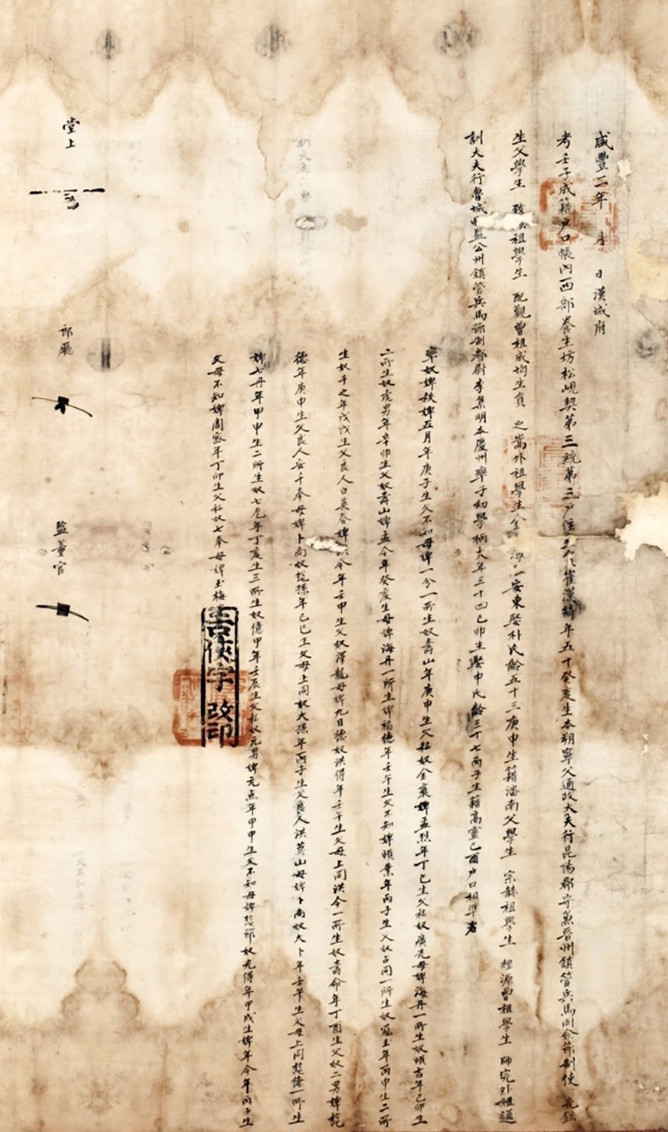
Document on Choe Han-gi's Family
Produced after a census conducted by the Office of the Capital (Hanseongbu) in 1852, this document contains basic information about the household of Choe Han-gi (1803-1877). It shows that Choe was a man aged 50 at the time of the census, and lived at Songhyeongye of Yangsaeng-bang in the western area of the capital of Joseon, along with a married son named Choe Byeong-dae and a few servants.
Choe Han-gi (pen-name: Hyegang) was a Silhak scholar and philosopher of science toward the end of the Joseon Period. He established an independent theory based on qi associated with the Confucian tradition that adopted the advanced natural science of western countries, and wrote many books displaying his interest in western academic learning. He is widely recognized as a promoter of Silhak and enlightenment philosophy at the time of a historic watershed in Joseon’s history, and as an independent scholar who strove to build a civilized society based on scientific learning.
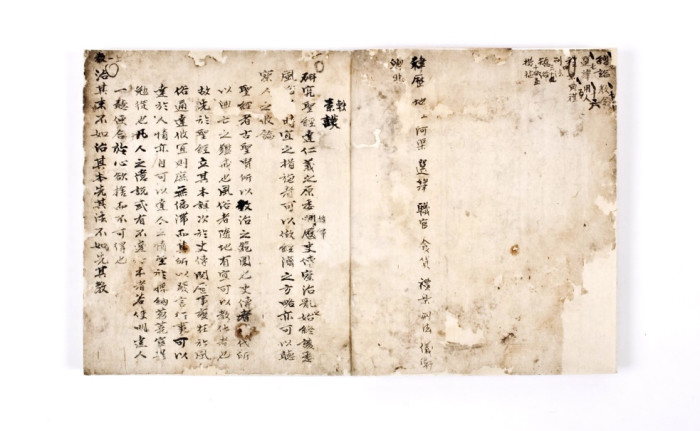
Somo (Document concerning Correct Administration)
One of the earliest extant works by Choe Han-gi (1803-1877), this book lays out his ideas about the administration of the state and the world through the voice of a common man without a government post. The author's discussion on practical measures for good governance is based on relevant texts in the Confucian classics, Records of the Grand Historian, episodes of peace and/or turmoil in history, and contemporary situations comparable with them.
Written by Choe Han-gi in his early days, the book examines both peaceful and turbulent periods in Korea’s history based on scriptures and historic records in an attempt to chart a way of “caring for the people according to the precepts of the scriptures,” which was the East Asian notion of economy.
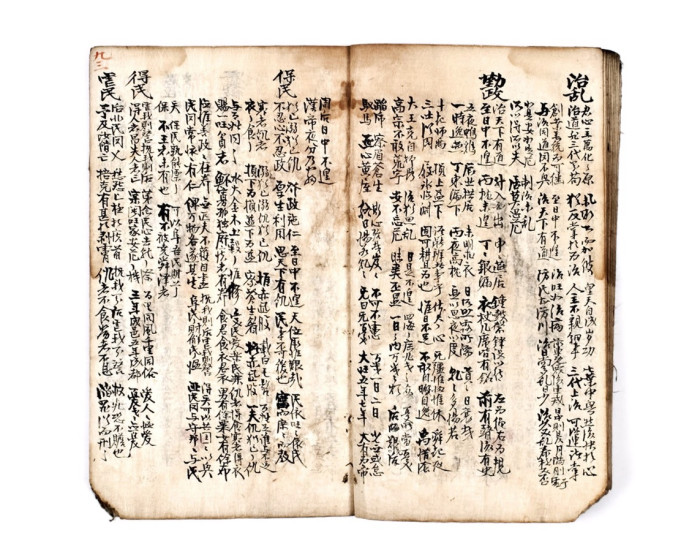
Hyegangjapgo
This manuscript consists of a collection of writings by Choe Han-gi (1803-1877) that are widely used as a basic material for the study of his achievements as a Silhak scholar. Although the essays in the book are arranged in a rather confusing manner, they nevertheless provide a valuable link between the great Silhak scholars including Jeong Yak-yong (1762-1836) and the Enlightenment (Gaehwa) Movement of the 1880s and 1890s.
This is a collection of rough drafts of writings by Choe Han-gi (pen-name: Hyegang) that was put together for the publication of a book of his works. It displays his ideas as a scholar who inherited the philosophy of leading Silhak scholars such as Jeong Yak-yong (pen-name: Dasan), developed it further, and linked it to the enlightenment philosophy. It contains forewords, selected writings, miscellaneous writings, and invocations, and serves as a basic material for studies of Choe’s ideas.
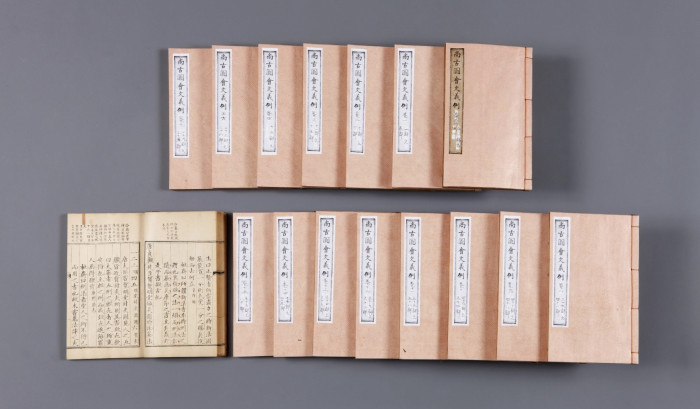
Sanggodohoemunuirye
This is a book about the philosophy and academic studies of Bak Gyu-su (1807-1877 / pen-name: Hwanjae). It contains phrases extracted from the writings of great Chinese men of letters whom he respected deeply. It was compiled for use as a material, based on which he and his friends composed new phrases as a pastime.
Bak Gyu-su, a grandson of Bak Ji-won (pen-name: Yeonam), was an enlightenment philosopher during the last decades of the Joseon Period. He inherited the view that Joseon should rehabilitate her culture by accommodating more advanced cultures from China and western countries, and maintained that the country should open its doors and start trading with other countries. He inherited Bak Ji-won’s mercantilism and strove to turn the country into a modern state through the opening of its ports.
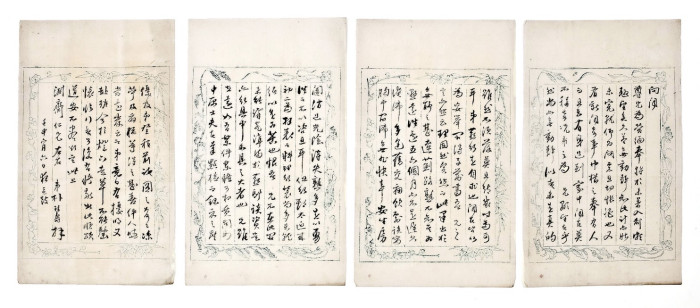
Letter by Bak Gyu-su
This letter was written by Bak Gyu-su (1807-1877) to a man whose courtesy name was Yeonjae in 1872, while he was preparing for a visit to the imperial court of Qing as the head of an embassy that included Gang Mun-hyeong (1831-?) and O Gyeong-seok (1831-1879). In the letter he wrote about his expectations for the visit, which would eventually offer him an opportunity to witness the Yangwu Movement, a Chinese effort to deal with the aggressive political and cultural impact of the West, and strengthened his belief in the need for diplomatic relations with Western countries and modernization.
He sent this letter to Yun Jong-eui (pen-name: Yeonjae) while making preparations for his trip to Yanjing, along with his attendants Gang Mun-hyeong and O Gyeong-seok, as a royal envoy in 1872 (the 6th year of the reign of King Gojong).
The letter displays his sense of expectation regarding his second trip to China, during which he witnessed the Qing people’s involvement in the modernization movement led by bureaucrats, which served to reinforce his belief about the need for aperture and enlightenment in Joseon.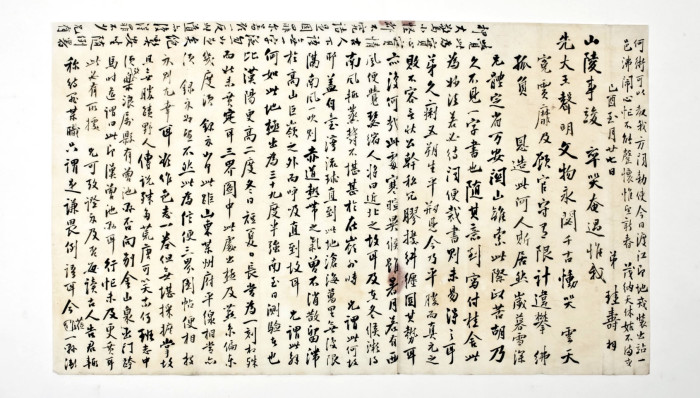
Letter by Bak Gyu-su
This letter was written by Bak Gyu-su (1807-1877) in 1849, while he was serving as the administrative head of Yonggang-hyeon, to his elder brother to ask him how he was doing. The letter expresses his concerns about people's feelings of uneasiness at the news that Qing envoys had crossed the border, and mentions the locations of Yonggang and Seoul, revealing his awareness of scientific knowledge newly introduced from the West. He wrote, for instance, that Yonggang is located at 39°N latitude, two degrees higher than Seoul, thus accounting for the difference in the duration of summer and winter between the two cities. He also compared the longitudes of the two Korean cities with that of the Qing capital, Yanjing (present-day Beijing).
Bak Gyu-su sent this letter to his elder brother in 1849 (the 15th year of King Heonjong’s reign), when he was serving as the local administrator of Yonggang-hyeon in Pyeongan-do. In the letter, he says that people were agitated about the news that an envoy of the Qing Dynasty had crossed the border, and compares the area administered by him with Hanyang based on modern scientific knowledge.
<ggc의 모든 콘텐츠는 저작권법의 보호를 받습니다.>
- 글쓴이
- 지지씨
- 자기소개